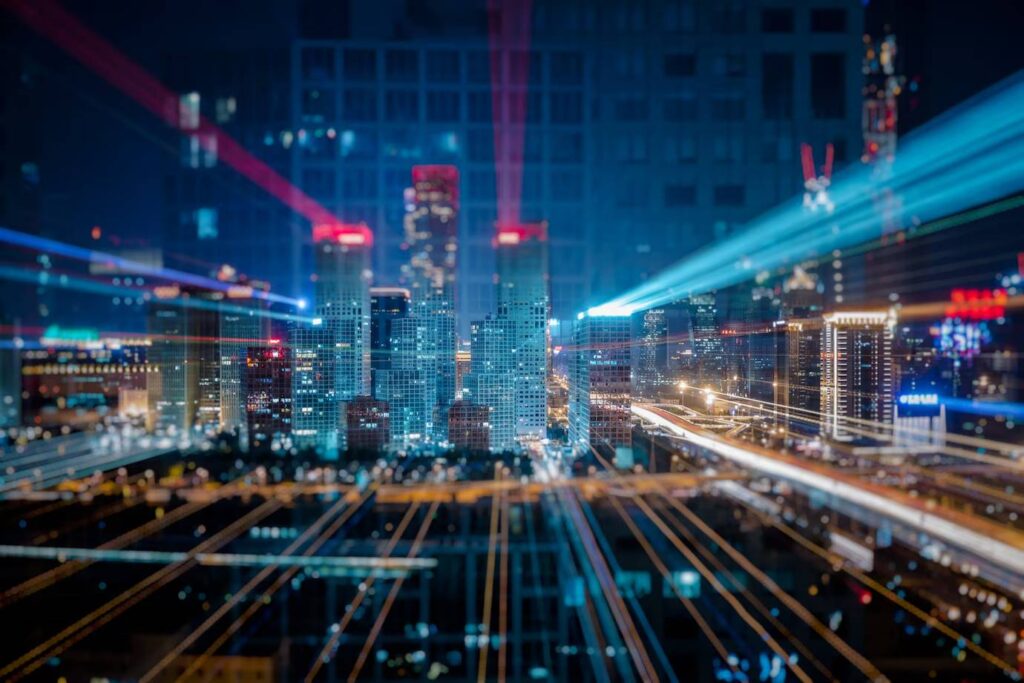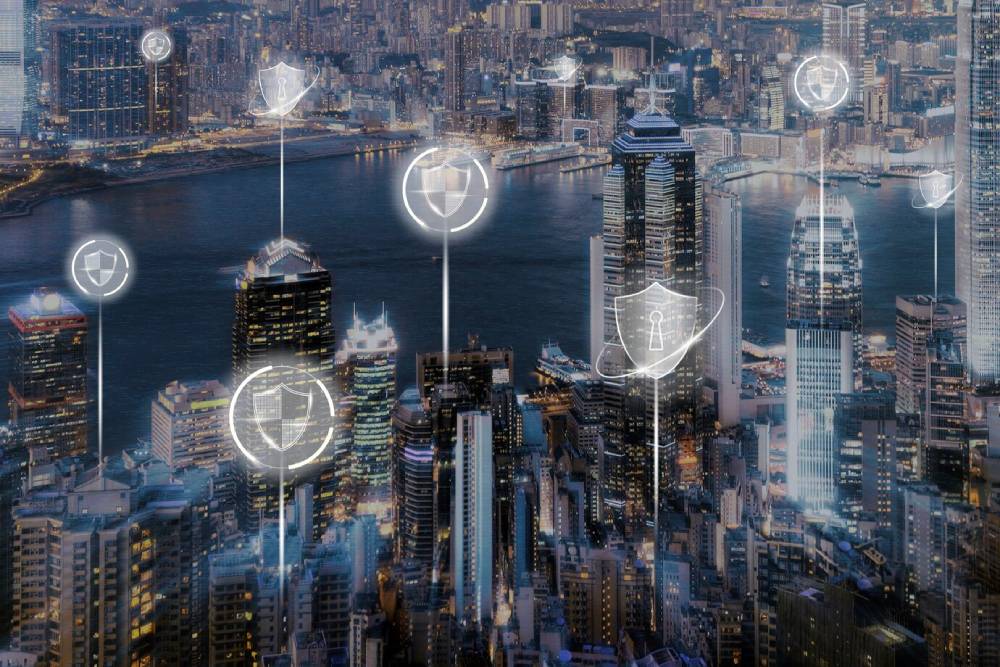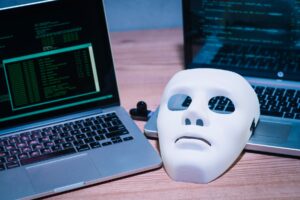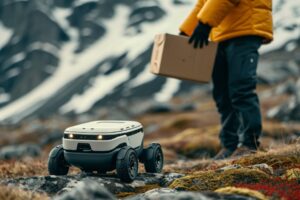The Science Blog

The Future of AI-Powered Smart Cities
As more people move to cities, they need to be efficient and sustainable. They should also focus on what residents need. Enter the age of the AI smart city. Here, artificial intelligence is key to urban life. It shapes how cities are built, run, and enjoyed.
Urban AI is changing how cities work. It has traffic lights that change in real time, smart waste management, and clever energy systems. The promise is a future where cities are cleaner, safer, and more liveable. This will happen not just by expanding, but by using smart optimisation.
This article looks at how AI is changing future cities. We’ll talk about the key technologies driving this change. We’ll also cover what residents can expect as these cities develop.
What Are AI-Powered Smart Cities?

A smart city uses digital technology to enhance public services. It also aims to reduce environmental impact and improve the quality of life. When powered by AI, these technologies become far more proactive and adaptive.
Key Features of AI Smart Cities:
- Real-time data analysis from sensors, cameras, and IoT devices
- Predictive capabilities for traffic, maintenance, and crime prevention
- Automated systems that reduce human error and improve response times
- Personalised services tailored to citizen needs
AI acts as the ‘brain’ of the smart city—processing vast quantities of data and making split-second decisions that optimise city operations.
1. Intelligent Traffic and Mobility Solutions
Smarter Movement for Congested Cities
One of the most immediate and visible applications of urban AI is in transport systems. AI can monitor traffic flow, predict congestion, and adjust traffic signals dynamically to ease bottlenecks.
Innovations Include:
- AI-powered traffic lights that adapt based on real-time conditions
- Autonomous public transport (e.g. buses, trams) on optimised routes
- Smart parking systems that guide drivers to available spots
- Shared mobility platforms integrating bikes, scooters, and ride-shares
Future cities may also use AI to encourage greener travel—by dynamically adjusting tolls or subsidies based on environmental impact.
2. AI for Public Safety and Security

Safer Cities Through Smarter Surveillance
Public safety in AI smart cities is increasingly managed with sophisticated surveillance and predictive policing tools—raising both opportunities and ethical considerations.
Key Applications:
- AI-driven CCTV that detects unusual behaviour or incidents in real time
- Predictive crime mapping to allocate police resources efficiently
- Automated emergency response that dispatches services based on AI analysis of calls or sensor data
While effective, these systems must be paired with transparent data governance to ensure privacy and prevent misuse.
3. Sustainable Energy and Smart Grids
Powering the Future Responsibly
AI plays a crucial role in managing energy use across future cities, helping to balance supply and demand, reduce waste, and accelerate the shift to renewables.
Benefits of AI in Energy Management:
- Smart meters and appliances that reduce peak load and save money
- Predictive maintenance for power lines and infrastructure
- Optimised energy distribution through AI-managed smart grids
- Real-time insights into carbon footprints by sector or building
Some cities are testing AI to manage power from solar and wind. They adjust energy use based on weather patterns and forecasts.
4. Waste Management and Environmental Monitoring
Cleaner Cities with Less Effort
Managing waste and pollution is one of the biggest challenges urban areas face. AI makes this process smarter, faster, and more eco-friendly.
AI Innovations Include:
- Sensor-equipped bins that alert collection services when full
- Automated sorting systems at recycling centres
- Air quality monitoring and real-time public alerts
- Flood and weather forecasting for disaster readiness
AI helps cities spot trends and hotspots. This lets them act early instead of waiting to react. As a result, public spaces stay cleaner and residents remain healthier.
5. Digital Governance and Citizen Services
Personalised and Efficient Public Administration
In AI smart cities, governments are going digital. AI helps automate tasks and makes it easier for citizens to engage.
Examples:
- Chatbots and virtual assistants for answering public queries
- AI-powered scheduling for healthcare, housing, and legal services
- Data analysis for policy-making and urban planning
- Participatory platforms that let citizens provide real-time feedback
This boosts efficiency and builds trust and transparency when backed by strong ethics.
6. Smart Buildings and Infrastructure

Smarter Spaces for Smarter Living
Future city buildings won’t just be smart; they will be intelligent ecosystems.
Features May Include:
- AI-managed HVAC systems that optimise comfort and energy use
- Facial recognition or biometric access for secure entry
- Dynamic lighting and window tinting based on occupancy and sunlight
- Structural monitoring to detect wear, earthquakes, or damage
With AI-powered building methods, these new ideas could speed up urban development. They can also make it safer and more sustainable.
7. Healthcare and Urban Well-being
Caring for Citizens with Intelligence
AI is changing health infrastructure in future cities. It helps predict disease outbreaks and manage hospital resources.
Current and Future Applications:
- Telemedicine and virtual triage bots for routine care
- Predictive analytics for resource allocation (e.g. beds, ventilators)
- Health monitoring wearables integrated into city systems
- Mental health apps and AI counsellors offering basic support
These tools improve healthcare delivery and reduce strain on busy systems in crowded areas.
8. Education and Smart Learning Environments
Personalised Learning for Urban Youth
As cities grow, so does the need for accessible, high-quality education. AI can help personalise learning experiences in urban classrooms and public institutions.
Key Developments:
- AI tutors that adapt content based on a learner’s pace and style
- Smart classrooms with environmental controls and interactive tech
- Predictive tools for identifying at-risk students
- Data-driven insights for curriculum development and resource planning
In inclusive AI smart cities, education is ongoing, adaptable, and meets new needs.
Challenges and Ethical Considerations
Urban AI offers many benefits, but cities face significant challenges.
1. Data Privacy
Smart cities rely heavily on data collection. Clear regulations are needed to protect personal privacy and ensure consent.
2. Algorithmic Bias
AI systems can inherit and perpetuate societal biases. Transparent development and diverse datasets are essential.
3. Digital Divide
Access to smart services needs to be fair. Smart cities shouldn’t leave out people who lack digital skills or internet access.
4. Cybersecurity
More connected systems mean greater vulnerability. Future cities must invest in robust security to prevent cyberattacks.
Cities Leading the Way
Several global metropolises are already laying the groundwork for AI smart cities:
- Singapore: Known for its Smart Nation initiative, incorporating AI in transport, healthcare, and governance.
- Barcelona: A pioneer in participatory smart city planning and environmental monitoring.
- Dubai: Using AI in policing, transport, and digital identity for services.
- Helsinki: Prioritises transparency and citizen-first smart systems with strong ethical oversight.
These examples show how various cultures adapt AI to meet local needs while keeping a human focus.
Building Cities That Think, Learn, and Adapt
The future of urban life is intelligent, interconnected, and constantly evolving. AI is becoming part of city life, affecting everything from roads to schools. AI smart cities will change how we understand living well in the 21st century.
These advances promise greener, safer, and more efficient cities. But they need careful, inclusive, and responsible implementation. Future cities must be built not only with technology in mind but with people at their heart.
Act now: Stay updated, talk to local leaders about smart projects, and support ethical AI in your community because the cities of tomorrow are being shaped by the decisions we make today.









